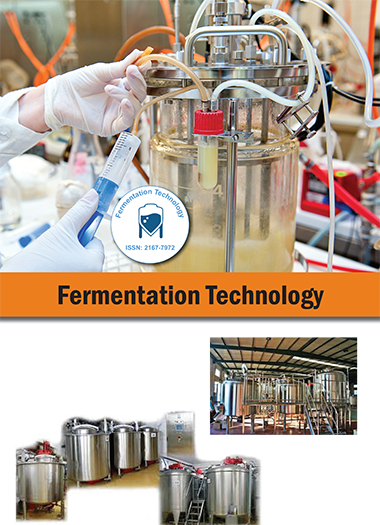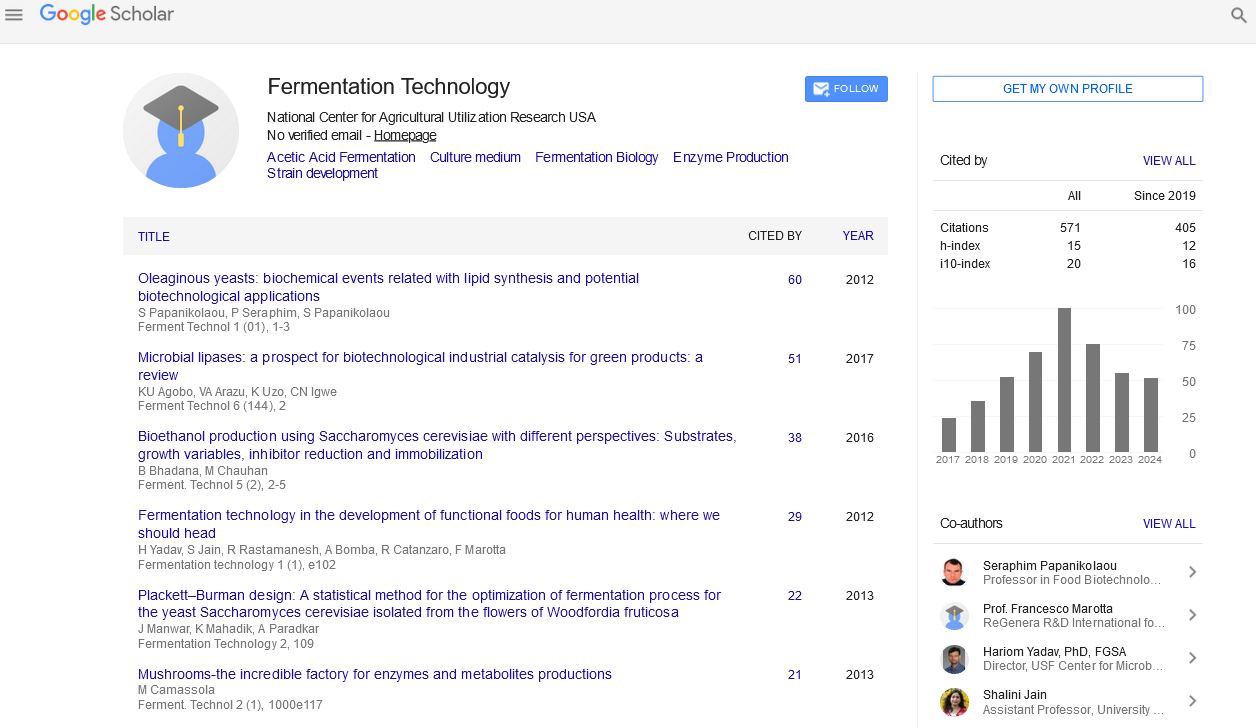Indexed In
- Open J Gate
- Genamics JournalSeek
- Access to Global Online Research in Agriculture (AGORA)
- RefSeek
- Hamdard University
- EBSCO A-Z
- OCLC- WorldCat
- Publons
Useful Links
Share This Page
Journal Flyer

Open Access Journals
- Agri and Aquaculture
- Biochemistry
- Bioinformatics & Systems Biology
- Business & Management
- Chemistry
- Clinical Sciences
- Engineering
- Food & Nutrition
- General Science
- Genetics & Molecular Biology
- Immunology & Microbiology
- Medical Sciences
- Neuroscience & Psychology
- Nursing & Health Care
- Pharmaceutical Sciences
A genetically modified Pichia pastoris based biocatalyst for short chain FOS production from sucrose
World Congress on Beneficial Microbes: Food, Pharma, Aqua & Beverages Industry
August 25-27, 2015 Valencia, Spain
Luis E Trujillo, Veronica Marcillo, Rodrigo Avalos, Karina Ponce and Thelvia Ramos
Universidad de las Fuerzas Armadas (ESPE), Ecuador
Scientific Tracks Abstracts: Ferment Technol
Abstract:
The methylotrophic yeast Pichia pastoris is not saccharolityc yeast, so it has become an important host organism for the high level production of recombinant enzymes that use sucrose as substrates. We have developed a yeast based biocatalyst for massive conversion of sucrose into fructooligosaccharides (FOS) particularly the commercially most attractive 1-kestose (GF2). These compounds are highly demanded as prebiotics in the functional food market so, the gene encoding native plant sucrose: Sucrose 1-fructosyltransferase (1-SST) able to produce vast amounts of FOS from sucrose was expressed constitutively in Pichia pastoris. Secretion driven by the S. cerevisiae alpha-factor signal peptide resulted in periplasmic retention (30%) and extracellular release (70%) of the recombinant enzyme. The gradual increase of the transgene dosage from one to nine integrated copies proportionally enhanced 1-SST yield to an overall activity of 140 U/mL without causing toxicity to the yeast cells. The acquired ability to utilize sucrose allowed the transgenic yeast to reach high biomass values (above 370 g wet weight/L) at relatively low costs in fed-batch fermentations for 72 hours. Intact cells were entrapped in calcium alginate beads and shown to yield high FOS levels (55-60% of carbohydrates in the reaction mixture) in concentrated reactions (initial sucrose 50º Bx) at pH 5.5-6.0 and 30-40º C. Sucrose hydrolysis was negligible and the 1-kestose content (90% of total FOS) was three-fold higher than the values reported with current fungal systems. In terms of productivity and stability, the immobilized cells (1 kg) produced 2.5 kg FOS per day and retained 90% of its original activity after 20 cycles of continuous reuse at 30º C. The biocatalyst offers flexibility of operation in packed-bed, batch or continuous-flow stirred tanks reactors. This genetically modified yeast allows the industrial production of FOS in a cost effective manner.
Biography :
Luis E Trujillo is currently working as Associate profesor in Universidad de las Fuerzas Armadas (ESPE), Ecuador.
Email: luis211063@gmail.com

